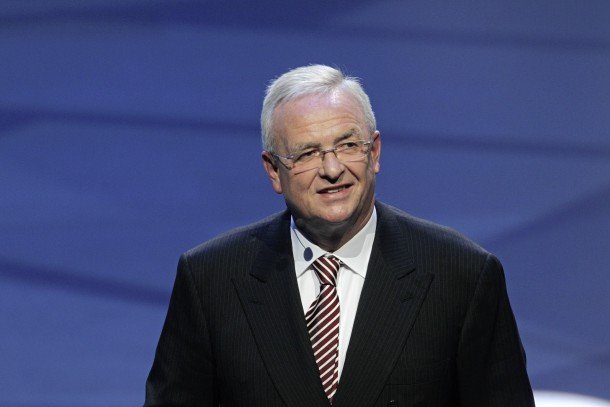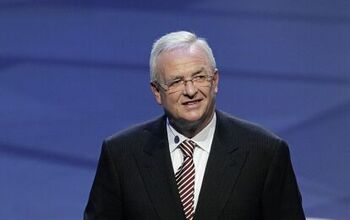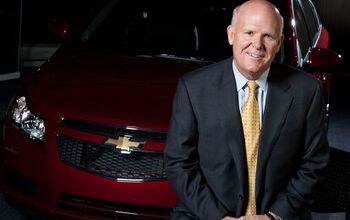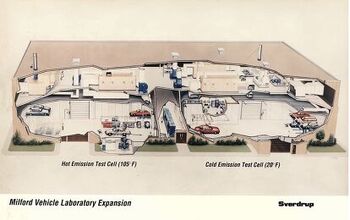What Did Volkswagen's CEO Know?

The first rumblings of an approaching crisis reached the highest levels of Volkswagen management in May 2014, but how much knowledge then-CEO Martin Winterkorn had of the looming diesel emissions scandal is still debatable.
It’s debatable because Winterkorn should have known about the initial study that raised red flags with environmental regulators — he was presented with a memo detailing the situation — but to this day Volkswagen can’t say if he even read it.
Later, the matter was discussed in the vicinity of Winterkorn … but Volkswagen doesn’t know if his ears picked up the dialogue.
When Volkswagen dropped a detailed document on March 2, it began by refuting the basis of a proposed shareholder lawsuit against the company. The automaker complied with capital markets laws, Volkswagen assured the army of potential litigators. There had been no knowledge of anything that could severely impact the company’s stock price, it said, arguing that the diesel issue was a relatively minor matter prior to the Environmental Protection Agency’s Notice of Violation.
Winterkorn’s job was an early casualty of the scandal that broke last Sept. 18.
He resigned on Sept. 23, stepping off the stricken boat and into a waiting severance package bound for the sunny shores of anywhere but here. In the background, his former company’s shares were falling like a Jetta dropped from a plane.
Six months on from Winterkorn’s departure, Volkswagen’s first detailed explanation of facts related to the scandal adds fuel to the questions swirling about his level of awareness.
After the International Council on Clean Transportation (ICCT) released a study in early 2014 showing emissions irregularities in certain Volkswagen products, the California Air Resources Board (CARB) called on Volkswagen to prove it wasn’t an egregious polluter. The ball was rolling, and it was gathering snow.
In Volkswagen’s words:
On 23 May 2014, a memo about the ICCT study was prepared for Martin Winterkorn, then-Chairman of the Management Board of Volkswagen AG. This memo was included in his extensive weekend mail. Whether and to which extent Mr. Winterkorn took notice of this memo at that time is not documented.
Mail piles up when you’re a CEO, it seems.
That summer, Volkswagen’s product safety committee formed a task force to deal with the diesel issue, and lawyers were hired to advise on American emissions laws.
According to current knowledge, on 27 July 2015, individual Volkswagen employees discussed the diesel issue on the periphery of a regular meeting about damage and product issues, in the presence of Martin Winterkorn and Herbert Diess. Concrete details of this meeting have not yet been reconstructed. In particular, it is not clear whether the participants understood already at this point in time that the change in the software violated U.S. environmental regulations. Mr. Winterkorn asked for further clarification of the issue.
Internal testing showed that the defeat device installed in its vehicles was in violations of federal and state regulators, and Winterkorn was notified of the situation in a note dated Sept. 4, 2015. For the next year, Volkswagen claims it was assured the fallout would be limited, that the number of vehicles affected didn’t exceed 1.1 million, didn’t extend to Europe, nor would it incur an unmanageable fine.
Volkswagen claims it expected to resolve the matter by bringing the affected vehicles to compliance and paying any associated fines, which it had estimated as not exceeding $100.1 million. It also implies the publicity heaped on the company by the unexpected Notice of Violation by the EPA pushed the company’s stock value off the ledge, forcing the company to scramble to assess the damage.
Volkswagen’s admission ends there. But last fall the scope of the scandal multiplied — and share values sank ever further — as more and more vehicles were discovered to contain the defeat device. Volkswagen’s diesel task force had a year to come up with an accurate tally of affected vehicles — a figure that proved to be a fraction of the actual number.
Don’t expect the lawsuits to go away anytime soon.
[Image: Volkswagen AG [ CC BY 3.0]/ Wikimedia Commons]

More by Steph Willems
Latest Car Reviews
Read moreLatest Product Reviews
Read moreRecent Comments
- MaintenanceCosts Poorly packaged, oddly proportioned small CUV with an unrefined hybrid powertrain and a luxury-market price? Who wouldn't want it?
- MaintenanceCosts Who knows whether it rides or handles acceptably or whether it chews up a set of tires in 5000 miles, but we definitely know it has a "mature stance."Sounds like JUST the kind of previous owner you'd want…
- 28-Cars-Later Nissan will be very fortunate to not be in the Japanese equivalent of Chapter 11 reorganization over the next 36 months, "getting rolling" is a luxury (also, I see what you did there).
- MaintenanceCosts RAM! RAM! RAM! ...... the child in the crosswalk that you can't see over the hood of this factory-lifted beast.
- 3-On-The-Tree Yes all the Older Land Cruiser’s and samurai’s have gone up here as well. I’ve taken both vehicle ps on some pretty rough roads exploring old mine shafts etc. I bought mine right before I deployed back in 08 and got it for $4000 and also bought another that is non running for parts, got a complete engine, drive train. The mice love it unfortunately.


































Comments
Join the conversation
The best part is the longer this whole sordid affair drags on the more likelihood of VWoA disappearing altogether. Every time another marque blows past them their relevance diminishes even further. By the way Mazda will be next to take them down another notch. So after all the inevitable billions in fines are tallied up at what point is it simply no longer feasible to sell VWs in North America? Audi meanwhile has come out of this virtually unscathed. And as they continue to move down market the business case for VW becomes even more cloudy. As for Winterkorn who gives a damn what the old dinosaur knew or didn't know. By every account he was a tyrant. They're better off without him.
I think Winterkorn and other execs knew what was going on. His background is in engineering and this must have been one of his key interests. I still find it mind-boggling that they elected to use the defeat system instead of simply developing a new engine which could use the urea system. For somewhere between EUR1 billion and EUR2 billion - not exactly chump change, but not excessive in the wider picture - they would've had a diesel engine for the next decade (or more) and the VW Group would still be the golden boy of the automotive world. I get the impression that in their hubris, VW thought they could do no wrong, but it all came back to bite them in the ass in a massive reality check.